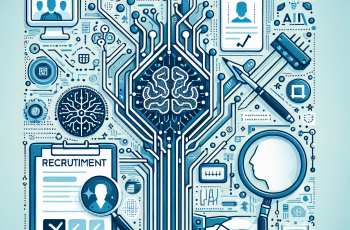Harnessing AI in Space Exploration: The Future of Celestial Discoveries
Estimated Reading Time: 6 minutes
- Increased Autonomy: AI enhances spacecraft autonomy, reducing the need for ground control.
- Enhanced Safety: AI optimizes navigation, minimizing risks during operations.
- Resource Optimization: AI ensures efficient use of limited resources and operational capabilities.
- Faster Scientific Return: AI accelerates scientific discoveries by processing data rapidly.
Table of Contents
- Introduction
- Key Applications of AI in Space Exploration
- Benefits of AI in Space
- Future Prospects
- In Summary
- Practical Takeaways for Recruiters and HR Professionals
- Call to Action
Introduction
As we stand on the brink of a new era in exploration, the integration of AI in space exploration is reshaping how we navigate, research, and build beyond our planet. This week, we delve into the transformative impact that artificial intelligence is wielding over space missions, highlighting its applications, benefits, and future prospects. From enabling autonomous navigation in alien environments to streamlining mission operations and enhancing safety, AI is the cornerstone of modern space endeavors.
Key Applications of AI in Space Exploration
Autonomous Navigation and Exploration
One of the most critical areas where AI has made significant strides is in autonomous navigation and exploration. This capability is vital in environments like Mars, where communication delays pose challenges for remote operations. NASA’s Perseverance and Curiosity rovers are equipped with AI systems that autonomously detect obstacles, plan optimal routes, and navigate hazardous terrains—all while conducting scientific investigations without direct instructions from Earth (NASA). This autonomy is crucial for adapting to the Martian landscape in real time, significantly enhancing the efficiency and safety of these missions (Automate, ESA).
Moreover, machine learning algorithms enable these robotic explorers to adapt their behavior to new conditions, improving their resilience and data collection capabilities. Such adaptability ensures that the rovers can continue their scientific missions even in unpredictable environments (Automate, ESA).
AI-Powered Spacecraft Navigation Systems
The implementation of AI-powered navigation systems is another groundbreaking application. Advanced algorithms integrate data from various sensors such as accelerometers, gyroscopes, and star trackers to optimize spacecraft navigation. These systems account for dynamically changing conditions like solar radiation and gravitational forces, allowing for real-time decision-making without the need for constant ground control (Quantum Zeitgeist).
Notable examples include:
- NASA’s Deep Space 1, which achieved remarkable trajectory accuracy through neural networks (Quantum Zeitgeist).
- ESA’s Rosetta Mission, where AI was instrumental in successfully landing the Philae probe on a comet (Quantum Zeitgeist).
- Curiosity Rover, which managed to autonomously navigate hazardous terrains, showcasing the capabilities of AI navigation (Quantum Zeitgeist).
Mission Planning and Scheduling
AI has been a critical player in mission planning and scheduling for decades. NASA employs AI to orchestrate complex operations, optimizing the utilization of spacecraft resources and ensuring efficient mission execution (NASA). The use of AI in this context allows for the rapid adjustment of plans and quick responses to unexpected challenges, further emphasizing the importance of agility in space missions.
Data Analysis and Diagnosis
The volume of data collected during space missions is staggering. With AI, the rapid analysis of massive satellite datasets is not only possible but essential for scientific progress. These AI systems can quickly diagnose technical issues, leading to timely corrective actions (NASA, APUS). This efficiency can unlock new opportunities for scientific discovery and foster faster iterations in research.
Construction and Habitat Design
As humanity looks toward long-term settlements on other celestial bodies, AI and robotics will play pivotal roles in constructing habitats and research facilities. The ability to build autonomously will be essential for managing the complexities of operations on the moon and Mars (Automate). This aspect not only facilitates human presence but also ensures safety and efficiency in construction processes.
Benefits of AI in Space
1. Increased Autonomy
AI enables spacecraft and rovers to operate with significant autonomy, which reduces the need for ground-based control. This capability allows missions to respond in real time to unexpected challenges, fostering resilience and improving operational success (Quantum Zeitgeist, ESA).
2. Enhanced Safety
Utilizing AI significantly enhances the safety of space missions. AI helps to navigate hazards and optimize exploration paths, minimizing risks during complex operations (Automate, Quantum Zeitgeist). This is particularly crucial in environments where every decision can have life-or-death implications.
3. Resource Optimization
AI plays a vital role in ensuring the efficient use of limited resources. Intelligent scheduling and data analysis allow space agencies to maximize their operational capabilities, from managing energy consumption to optimizing data bandwidth (NASA).
4. Faster Scientific Return
AI accelerates the pace of scientific return by rapidly processing data and autonomously identifying points of interest. This capability allows scientists to quickly redirect efforts toward the most promising discoveries, enhancing our understanding of the universe (APUS, NASA).
Future Prospects
The future of AI in space exploration looks incredibly promising, with expectations of its integration becoming more profound as missions grow in complexity. Next-generation space explorers will leverage advanced machine learning to adapt fluidly to evolving situations, which will pave the way for deeper exploration of the solar system and beyond (Automate, APUS). The scaling up of AI technologies will also be crucial for long-duration missions and the establishment of off-world settlements.
In Summary
AI is revolutionizing every facet of space exploration—from mission planning and spacecraft navigation to autonomous exploration, construction, and data analysis. Its increasing role is foundational to the safety and success of both current and forthcoming missions. As space agencies and private enterprises seek to push the boundaries of human achievement, the combination of artificial intelligence and robotics will be at the forefront of exploration, guiding us to venture further than ever before into the cosmos.

